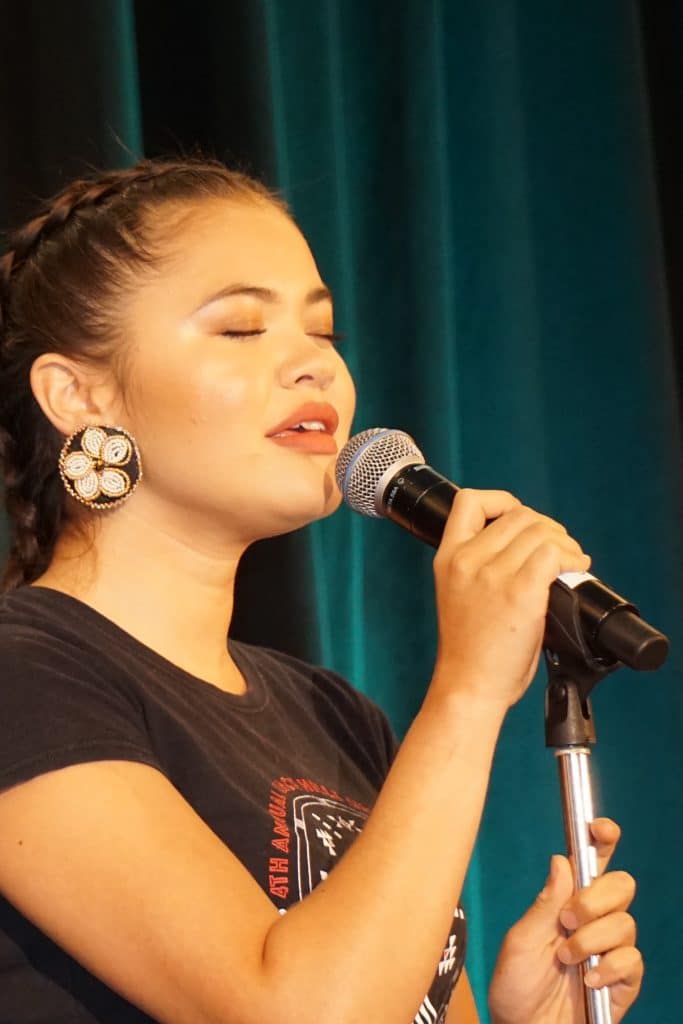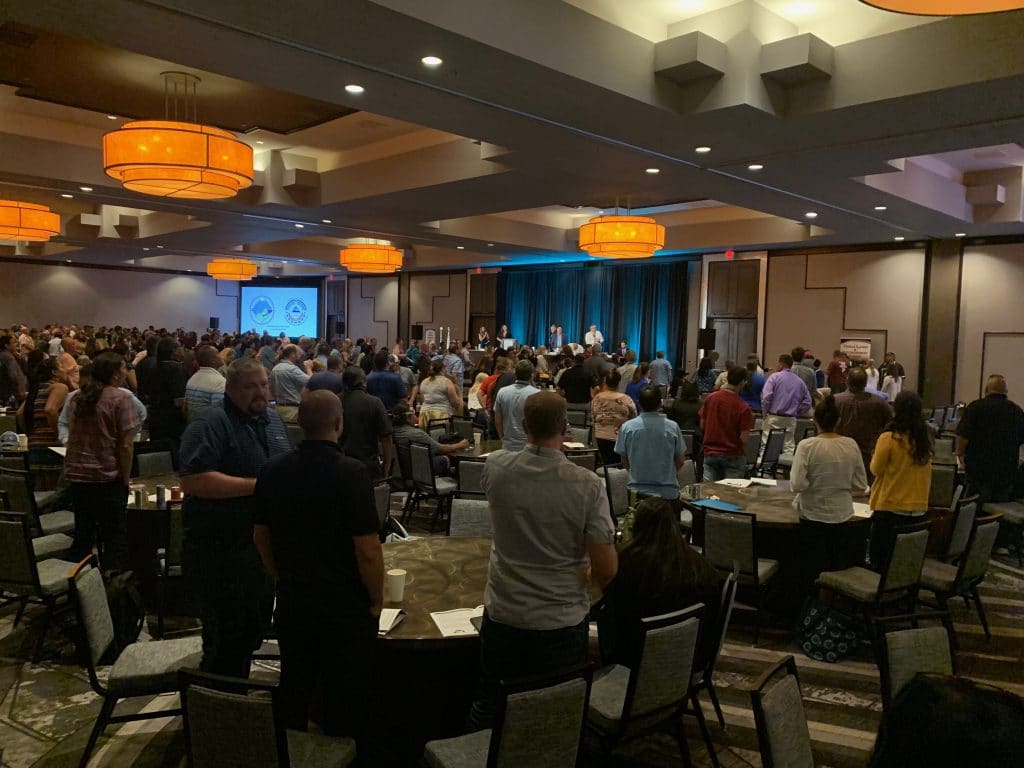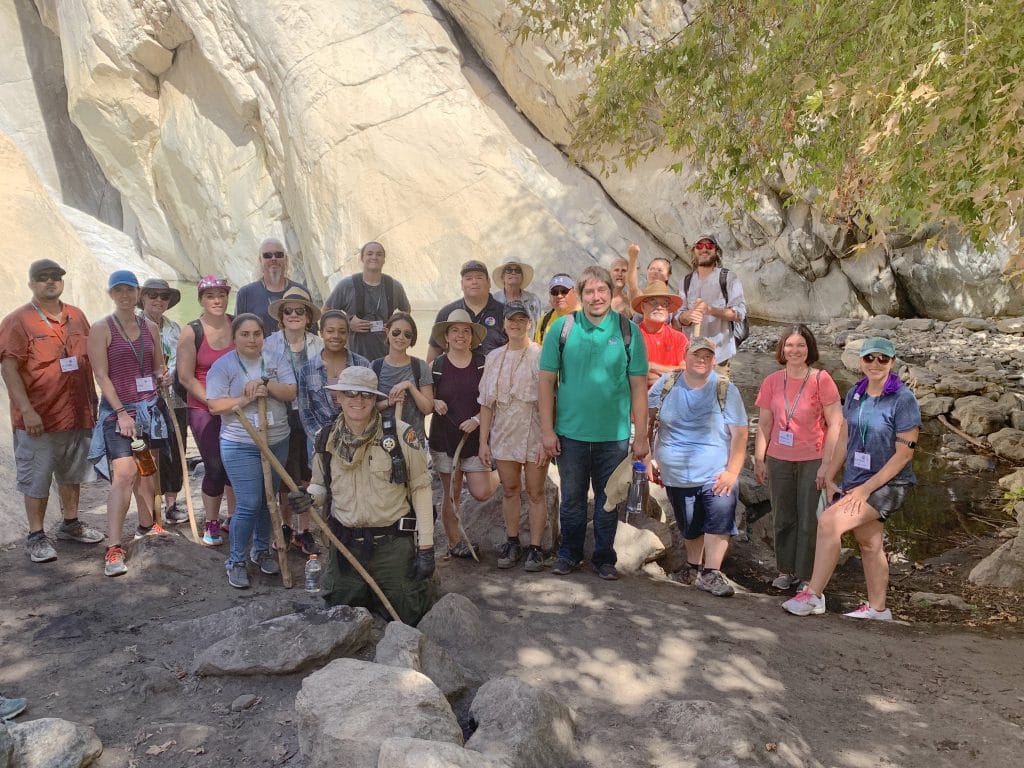Aug. 29, 2019
NAU’s Institute for Tribal Environmental Professionals (ITEP) held its ninth annual Tribal Lands and Environment Forum (TLEF) last week in Palm Springs, California.
The conference featured technical trainings, field trips, breakout sessions and cultural events related to this year’s theme: A National Conversation on Tribal Land and Water Resources. The 65 breakout sessions covered management topics such as solid and hazardous waste, brownfields, underground storage tanks, Superfund sites, water quality programs and emergency response. Field trips allowed participants to see how neighboring tribes are addressing waste diversion, habitat restoration and other environmental concerns.
“What I find most satisfying about this year’s TLEF is the effect all of the Native youth had on the attendees,” said Todd Barnell, project director for ITEP’s waste and response programs. “Attendees told me this was the most emotional TLEF yet, and that is due to the powerful voices of these Native youth.”
The conference included a performance and speech by Ta’Kaiya Blaney, an internationally known singer and environmental justice activist from the Tla’Amin First Nation in British Columbia, as well as Miss Agua Caliente, Justice Galindo, performing her tribe’s migration songs during an event featuring local Native artists.

With more than 550 attendees, this was the largest TLEF in history, with 394 tribal members representing 158 federally recognized tribes. The conference provides a unique forum for government agencies to engage directly with tribal entities and the conference welcomed more than 70 representatives from the Environmental Protection Agency (EPA), the Department of the Interior and the Bureau of Indian Affairs.
One of the first-time participants was Kathryn Sunny, who began her position as the brownfields coordinator for the Muscogee Creek Nation in Oklahoma less than a year ago. The conference provided tangible strategies she needed to meet the criteria for her EPA grant. She said some of the most valuable learning occurred while talking with members of other tribes who were dealing with similar issues.
“I’ve met people from different states. I’ve learned what has worked for them, what hasn’t worked for them, and how they worked around different obstacles,” Sunny said. “I really value all of that information.”
While there are other conferences that provide support for environmental stewardship, TLEF is one of the few tailored to tribal nations. Challenges to environment and natural resource management can play out in different ways based on location, landscape, tribal government and tribal customs.

“For most tribes, this conference meets their needs better,” said Mickey Hartnett, co-director for the Kansas State University Technical Assistance to Brownfields Program. “They can relate more to the speakers, and the speakers can understand their audience better. They present information in a way that relates to the tribes. I think ITEP’s done a great job of targeting their audience. There’s a real sense of community among the participants.”
A fixture on the NAU campus since 1992, ITEP provides training and technical support to Tribes across the country as sovereign stewards of their environment and natural resources. ITEP has worked hand-in-hand with tribes and federal partners such as the EPA in supporting the development of tribal capacity with management of environmental and natural resource programs. There are programs covering not only waste management and environmental response, but also climate change, air quality, water resources and other environmental media. ITEP serves tribes through national conferences such as the TLEF, as well as in-person trainings, coordinating several Tribal Partnership Groups, online courses, direct technical assistance and mentoring projects.
TLEF 2019 was organized by ITEP, the EPA and the Tribal Waste and Response Steering Committee, working in close partnership with the Agua Caliente Band of Cahuilla Indians. For more information about ITEP and the TLEF, please visit ITEP’s website.



